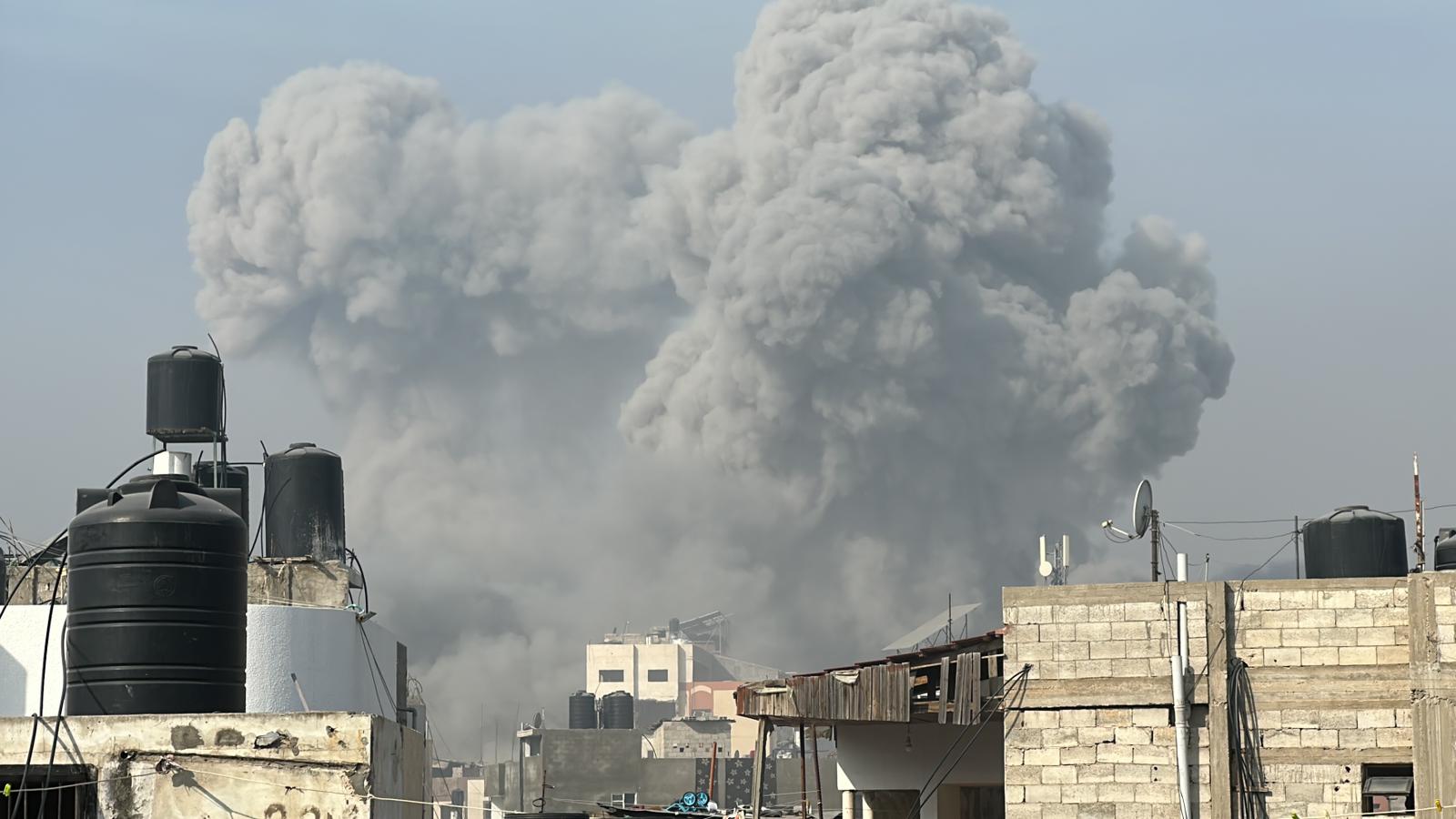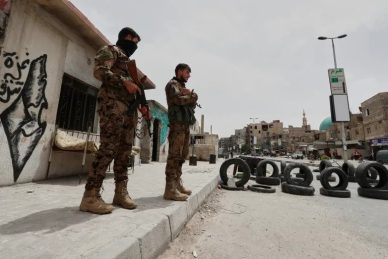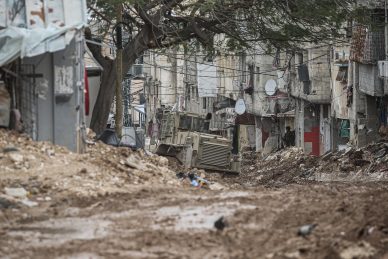GAZA, (PIC)
After 80 days of the ongoing Israeli aggression on Gaza Strip, leaving more than 20,000 martyrs, tens of thousands wounded, in addition to catastrophic humanitarian conditions, the entire world still fails to stop the Israeli aggression on civilians and the bloodbath taking place in Gaza.
Furthermore, the international community, especially the Arab and Muslim countries have been all incapable of enforcing the international law to protect civilians in Palestine or even entering food, water, and relief and medical aid to the besieged enclave.
Arab media reported that Egypt has submitted a proposal to reach an agreement on the exchange of “Israeli captives” in the Gaza Strip and Palestinian prisoners in Israeli prisons in three stages. However, the resistance factions have rejected the proposal as it does not amount to the scale of the disaster taking place Gaza or to what the Palestinian people aspire to in terms of a comprehensive cessation of aggression.
Reprehensible!
Speaking to the PIC, the political analyst Atef Al-Joulani described the scene as reprehensible, wondering how could the Egyptian side suggest such an initiative that contradicts the clear position of all resistance factions?
Al-Joulani added, “The Egyptian initiative proposed three stages. The first stage serves the Israeli occupation, which has been pushing for the release of new prisoners. Once this stage is achieved, no negotiations would make sense.”
Al-Joulani explained that in reality what would be achieved will be limited to the first stage, because Israel considers the release of any Israeli captive held by the resistance as an achievement, that would be used as a pretext to carry on with its aggression on Gaza, telling the Israeli people that this achievement has been reached under the pressure of war.
He stressed that the resistance’s approval of any partial deal, whether included in the Egyptian initiative or any other proposal, will contribute to prolonging the war, instead of ceasing it.
The political analyst said, “I am truly surprised that the Egyptian side would suggest such an initiative while it is aware of the true Israeli motives behind any partial deals.”
Rejecting the initiative is a wise political stance
Al-Joulani stressed that “the resistance’s position of rejecting the Egyptian initiative is a wise decision from a political standpoint because it goes in line with its constant position announced over the past couple of weeks.”
He opined that Israel must be given one option: a permanent ceasefire with the withdrawal of Israeli forces from the Gaza Strip and an exchange deal that includes all prisoners from both sides, stressing that “partial deals serve the Israeli side, not the resistance or the Palestinian people.”
Regarding the possibility of prolonging the aggression on the Gaza Strip for a long time, Al-Joulani ruled this out, saying, “It is not a zero-sum game as the talks over the past days from American officials, as well as Hebrew media, have been discussing a third phase of confrontation in which the fighting will be limited.”
He added, “Without the need for a new deal… after 80 days of the Israeli aggression on Gaza, the American administration has reached the conclusion that the Israeli army is unable to achieve its goals.”
“Therefore, we have heard criticism from Israeli army leaders, specifically from former Deputy Chief of Staff, and former Prime Minister Ehud Barak who spoke about the unrealistic goals that Netanyahu put forward at the beginning of the aggression,” he said.
Al-Joulani said that Netanyahu and the war cabinet will eventually lower down their goals.
He stressed that if the world is concerned with a quick end to this insane aggression against the Gaza Strip, it must accept the point of view of the Palestinian resistance and enforce a permanent ceasefire.
Answering the question: Is the horizon closed? Al-Joulani said, “This war has lost its justifications, and without partial deals, Israel becomes obliged to reconsider its military operations.”
The political analyst pointed out that “the Israeli massacres committed in Gaza, with the most recent of which was carried out just yesterday, expose the immense losses inflicted on the Israeli army. The Israeli acknowledgment of the killing of 15 soldiers within the past 24 hours, though less than the real numbers, reveals the nature of the confrontations taking place on the ground.”
Al-Joulani concluded his statement by highlighting that despite the great grief and suffering that the Palestinian people are facing today, and the large death toll, this battle has reached a final stage of the confrontation.
A few days ago, the head of Hamas political bureau, Ismail Haneyya, leading a delegation of the Movement’s leaders, arrived in Cairo to discuss a ceasefire and exchange of prisoners.
Sources affiliated with Hamas and Islamic Jihad have stressed that what is acceptable would be “one exchange deal on the basis of all for all, in addition to immediate reconstruction.”















